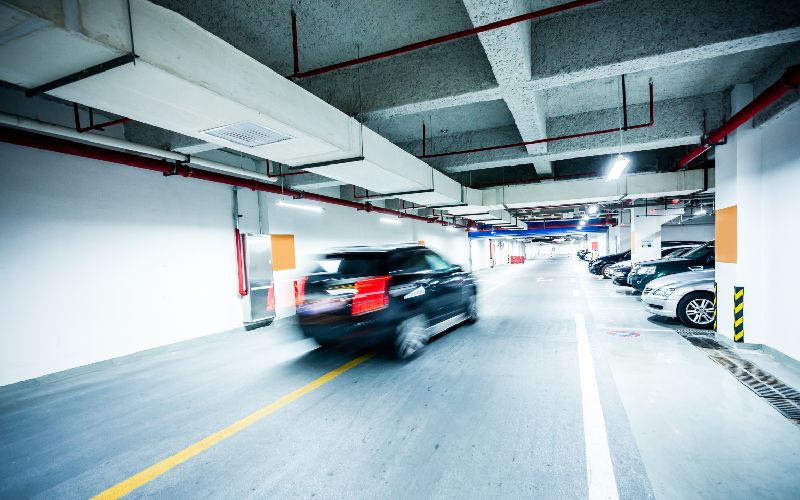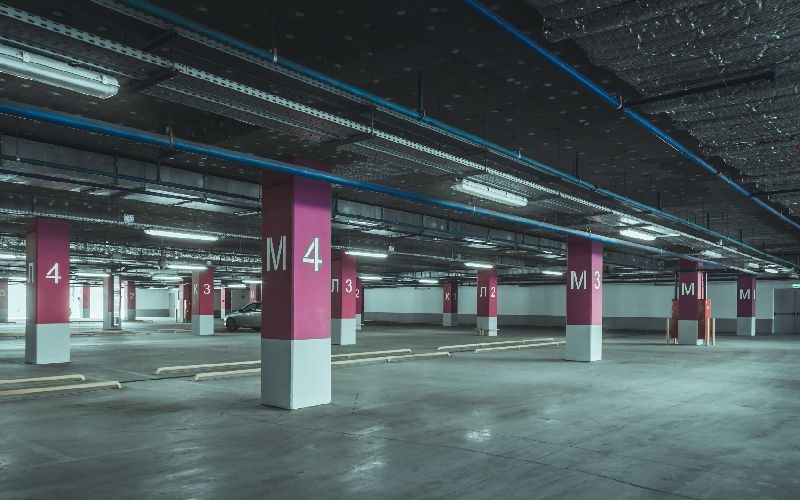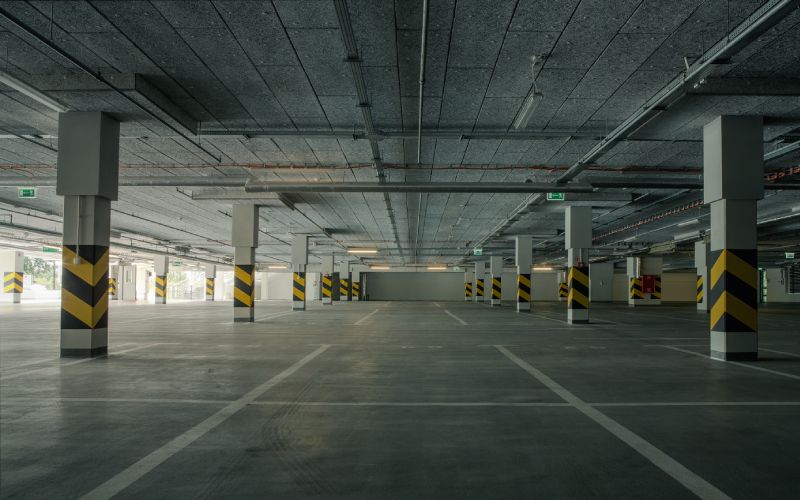500 Hood Road, Suite 320Markham ONL3R 9Z3

There are many common issues that parking garages tend to face. Many of these common issues become worse over time, and end up causing structural damage. This also shortens the lifespan of various components of parking structures, and underground parking garages overall.
Being aware of common concerns, and how to prevent them from becoming significant issues, is important for property managers.
Underground parking garages generally don't go below two levels, since they are more complex in their requirements for structural support. This is why they are initially more expensive to build, but also why additional ongoing inspections, maintenance, and care is needed. They support the buildings on top, and need to have full structural integrity, while dealing with issues like groundwater and shoring that above-ground parking structures don't need to cope with.
The consequences of any issue in an underground parking lot is more significant, so it's important to address any issues as soon as possible.

Damage due to vehicle collisions can cause surprisingly significant damage to any parking lot, and when the damage occurs underground, it becomes even more of an issue. When a vehicle hits a pillar trying to fit into a tight parking space, or contacts the wall, any damage needs to be assessed.
Vehicle fluids can also cause premature deterioration.
Making sure there is enough lighting and that directions are clearly marked will help. Also, pillar protection, reflective taping on pillars, and ensuring parking spaces allow enough room all reduces the likelihood of damage.
Water damage is a major concern for underground parking garages. Over time, waterproofing membranes deteriorate or become debonded, allowing leaks which lead to moisture damage.
What's worse is that as waterproofing degrades and allows leaks, chemical processes occur that make further degradation happen. Carbonation contamination happens when carbon dioxide reacts with moisture in concrete creating calcium carbonate and lowering the pH levels. This will detach waterproof layers, to aggravate the situation.
Without the waterproofing layers, you can experience visible leaks of varying sizes. As water gets into any cracks in concrete slabs, walls, and elsewhere, this can lead to rotting of certain materials, as well as mold and mildew. If a leak is significant enough, it can create standing water, which poses safety concerns.
Salt in the water leads to chloride contamination which will corrode the reinforcing steel in concrete. This weakens the steel and makes it expand, so it then cracks the concrete. The resulting delamination becomes worse over time and creates significant concerns about the integrity of the structure.
To address this issue, it's important to have professional inspections to identify any concerns at the earliest possible stage. Relying on visibility of leaks to identify issues, and assuming that because there are no moisture marks or seepage through that there isn't a problem is a dangerous practice. Professional inspections can identify moisture damage concerns to your property before these visible signs are apparent. Repairs are more cost effective at these earlier stages.
It's also important to consider replacing waterproofing whenever undergoing renovations, repairs or maintenance to an underground parking structure. Since waterproofing degrades and may not have been applied properly, and since renovations and repairs in the area can damage membranes, it's a best practice to assess and replace waterproofing every time work is being done. In addition, your parking structures may benefit from improved new technologies in waterproofing.
Concrete deterioration is a very common issue, and will need to be well-maintained and repaired as necessary. Delamination, debonding, leaching, scaling, and several other issues that affect the integrity of the concrete are all common concerns in underground garages.
Many of these issues are related to moisture damage and salt contamination. Preventing leaks that allow moisture to seep in is essential. It's also important, when damage is noticed, not to simply complete superficial repairs.
Repairing the surface of concrete makes it appear better, and it can be easy to ignore the possibility of greater concerns underneath.
Property managers should be aware of concealed deterioration mechanisms; a professional inspection can help identify any deterioration that is not visible to the eye, and identify critical preventive maintenance or repairs needed.

Corrosion of steel reinforcements is another one of the most common causes of premature damage and deterioration in underground garages, and another significant issue because of the impacts to the safety of the structure. If rebar is visible, it is a sign of a major issue. Significant repairs are needed for these situations.
Similarly to concrete, moisture is the key culprit, so improving waterproofing efforts and regular inspections for potential moisture concerns is important.
Proper maintenance of an underground parking garage will minimize deterioration for a longer lifespan. Reducing moisture and salt exposure is key.
Avoid using salt products, including calcium chloride and sodium chloride, which corrode materials, and use sand or other alternative options for ice.
Be aware that even if your property doesn't use salt, it gets tracked in by vehicles, and can be dissolved in any water that leaks through. Therefore, even if you don't use salt, it is still recommended to power wash parking structures and decks to remove damaging salt and other chemicals, including vehicle fluids, before they can be absorbed into concrete. Be sure to also flush and clean drains and pipes, and replace any damaged ones.
Inspecting an underground parking structure, and having a comprehensive maintenance plan, helps identify needed preventive maintenance and repairs. More cost-effective maintenance is prioritized and completed before expensive repairs, replacements and closures are required. It ensures work actually gets done, too. A professional assessment is not only a convenience, but it also ensures hidden issues are identified.
ABSI offers professional engineering services for underground parking lot rehabilitation, to help you get the most out of your parking garage. We explain why work is needed, and prioritize maintenance and repairs for better budgeting.

Naji Hassan, a renowned professional in Building Science and Engineering, brings a wealth of knowledge and experience to his field. Educated at Beirut Arab University and Harvard Business School Online, Hassan has honed his expertise in structural and municipal engineering, building science, and business management. As the President of Accent Building Sciences and an experienced Senior Project Manager, he has made significant strides in building envelope engineering, building condition assessments, and energy retrofit programs. His commitment to innovation and excellence is evident in his approach to large-scale project management and his active participation in industry organizations. Hassan is not only a leader in his field but also a prolific writer and thought leader. He regularly shares his insights and experiences through articles on LinkedIn, which can be found at LinkedIn Articles. Additionally, he maintains a blog where he delves deeper into various aspects of building science, accessible at Accent Building Sciences Blog. Outside of his professional pursuits, Hassan enjoys travel, golf, languages, gardening, and music, reflecting his diverse interests and well-rounded character. Naji Hassan's journey in building science and engineering is not just a career but a testament to his lifelong dedication to learning, teaching, and inspiring others in his field.

500 Hood Road, Suite 320Markham ONL3R 9Z3